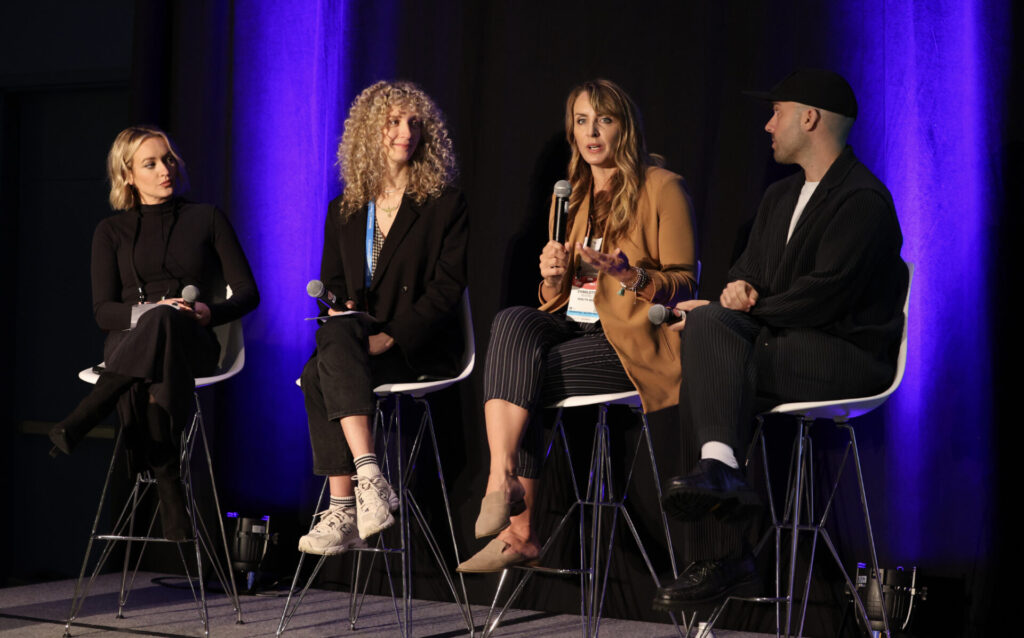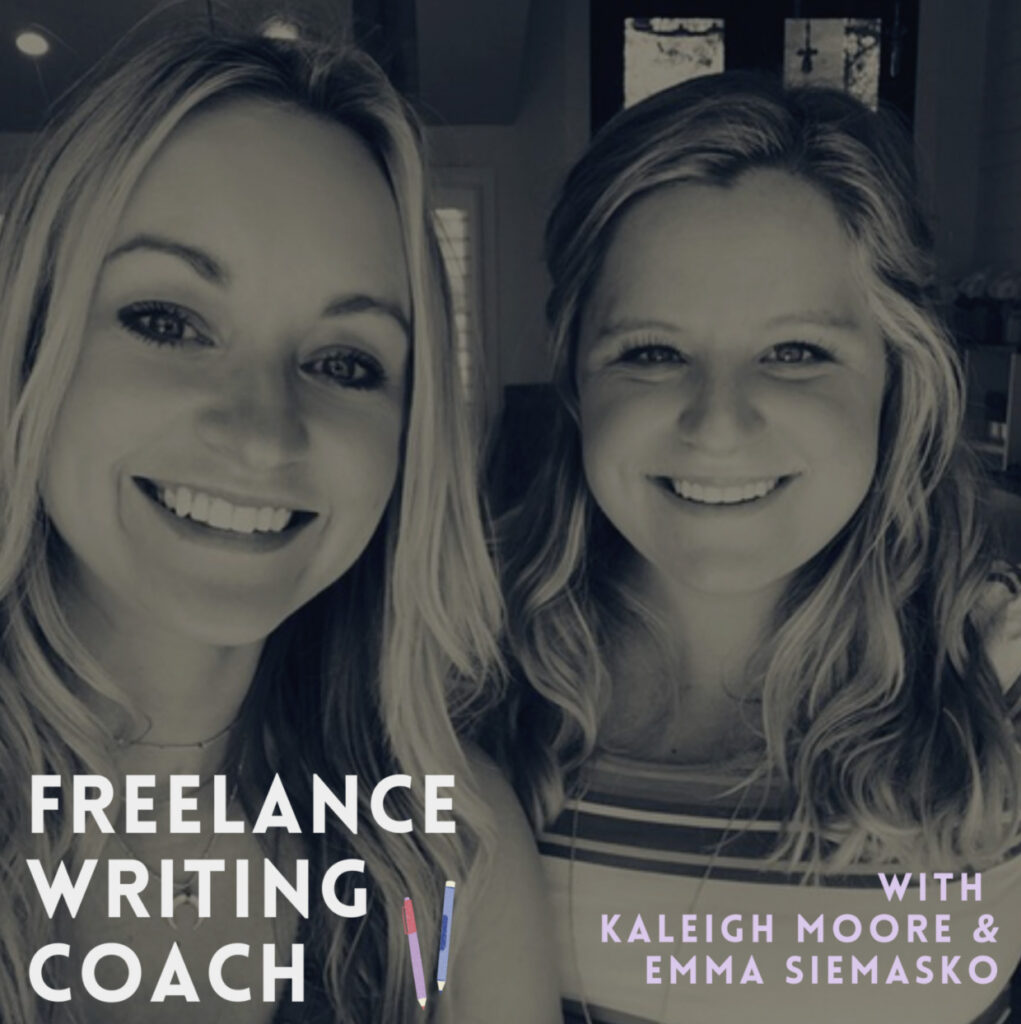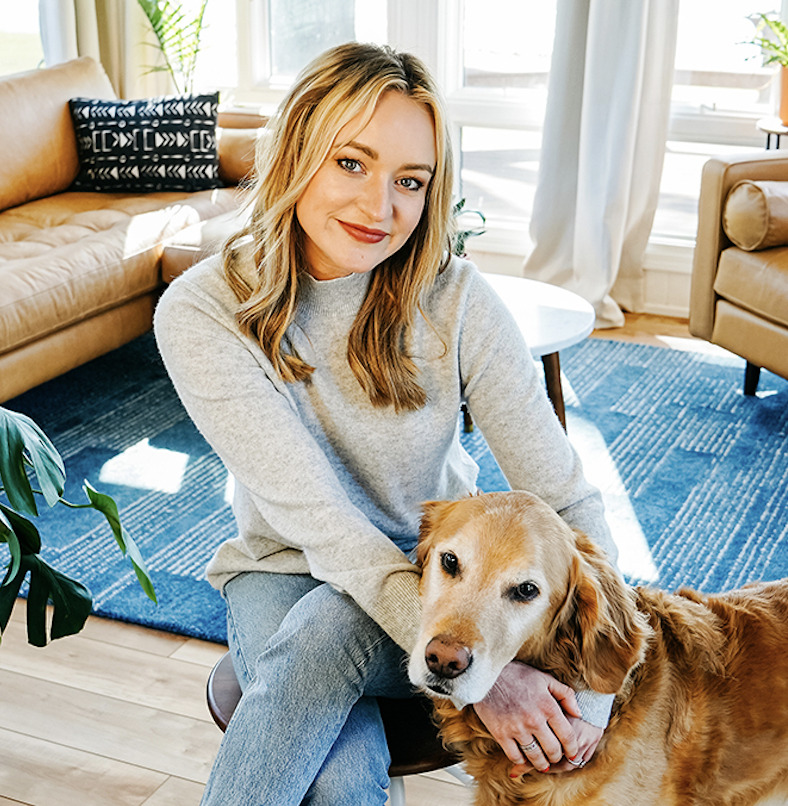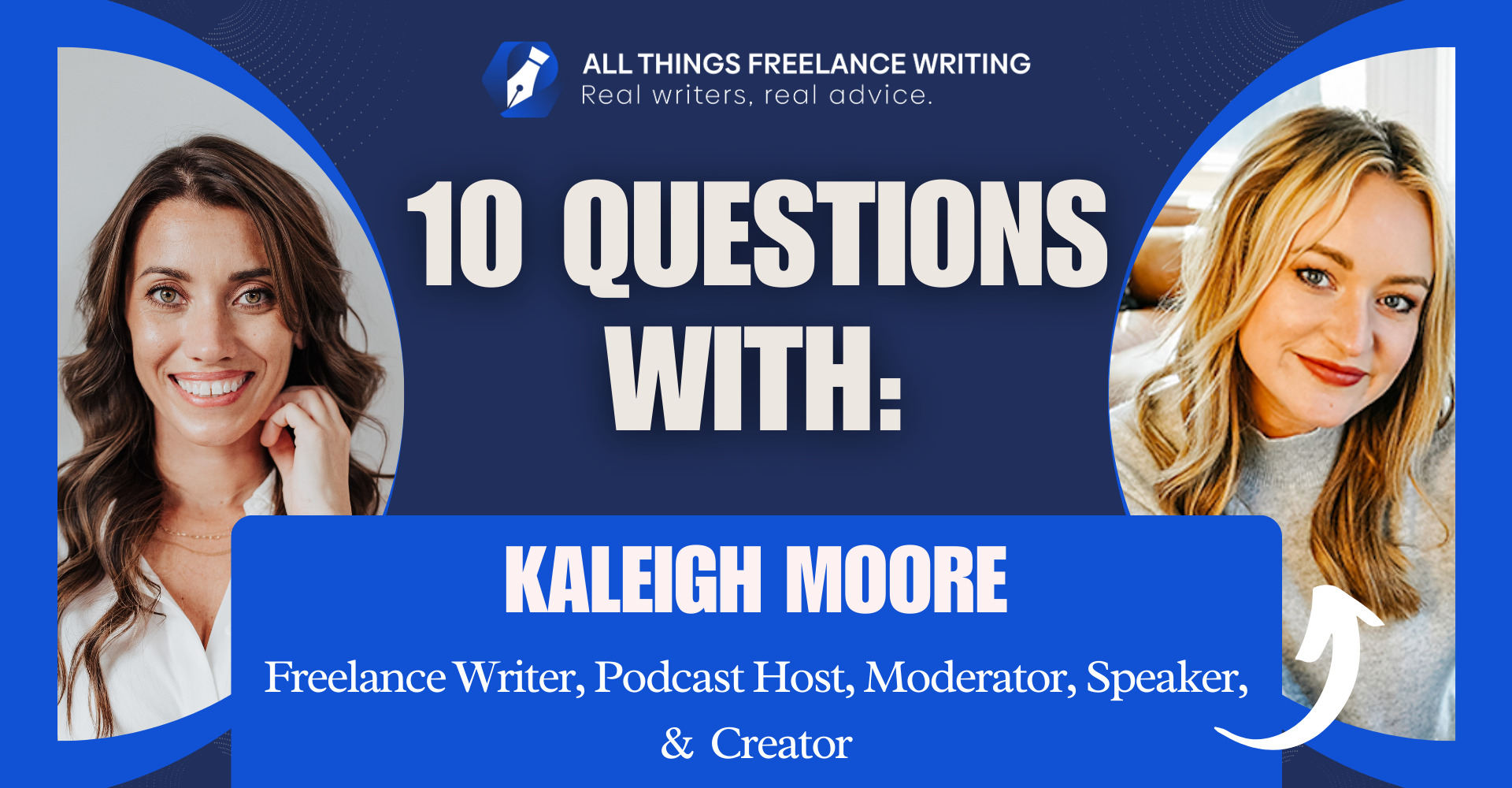Kaleigh Moore is a freelance content writer for top eCommerce SaaS businesses like Copyhackers, ConversionXL, and Shopify Plus. She’s also a retail/DTC journalist who’s been featured in Adweek, Forbes, and Vogue Business — just to name a few. And if that wasn’t enough, she co-hosts two podcasts, has a suite of digital products, and is a moderator and keynote speaker.
- When did you start freelance writing? 10 years ago
- Where are you from? Central Illinois
1. Hi Kaleigh! Can you share a bit about how and why you got into freelance writing?
I started freelancing on the side about two years into working my first job post-college (PR Manager for a non-profit) to supplement my (meager) income. Within about six months, I was making enough on the side that I wanted to try going full-time with the freelance work and see if it was sustainable long-term.
I gave myself 18 months to try it, and am now 10 years into freelancing full-time. I fell into the SaaS niche after a random conversation on Twitter with a fellow writer who was the editor for a SaaS company’s blog–she needed freelancers, and I was up for more work. From there, the referral connections grew naturally.
2. And today, as a freelance content writer for top eCommerce SaaS businesses, how do you find most of your clients (or how do they find you)?

Still referrals! I’ve had ups and downs just like everyone else where I’ve had to be more proactive in my outreach to keep busy with work. But for the most part, I’ve established myself in my niche so that my name is often circulated for writing work when the need arises. I’m finally to a place where clients come to me rather than me having to pitch them or do outreach.
“I’ve established myself in my niche so that my name is often circulated for writing work when the need arises”
Kaleigh Moore
3. You’ve shared about your experience getting overbooked and overwhelmed as a freelance writer. How would you say freelancers can prevent overworking themselves?
A workload planner or something similar is a very intentional, mindful way to manage how much work you’re taking on–it helps you see how full your plate is and when you’ve reached capacity. I use this one.
4. And what do you think are early signs to watch out for that hint that you might be overworking?
- You resent how much time you spend sitting at your computer/the assignments on your to-do list.
- You feel stressed all the time and have to pass on opportunities that feel non-essential.
- The quality of work starts to slip because you’re going for quantity over quality.
5. Along with hitting your 10th anniversary as a freelance writer in 2023, you took a sabbatical. How was it to take a break after all that time and how does it feel to be back?
It was SO necessary, and I’d encourage everyone to do it if he/she is able. It was refreshing to give myself some time to mentally reset before getting back in this January (although it’s been tough ramping back up when the economy is not great and layoffs/budget cuts abound.) Freelancing is always unpredictable workload-wise, but I finally feel excited to work again.
6. As someone who has grown a large engaged audience on Twitter/X (64.6K), what advice would you give to a writer who wants to build a presence there in 2024?
Focus on one subject matter and really lean in. Be deliberate about interacting with other people in that space. Share quality insights. More here.
7. You’ve shared that you take a value-based approach to pricing your writing services — clients pay for the value and ROI of the finished product, not the time spent producing it. How does that work (e.g. how can writers calculate pricing using that approach with their clients)?
I do per-word pricing because it’s not time-based (which penalizes your efficiency and commoditizes the work.) This way, I can accurately scope projects and explain/educate on the value of what’s included in my rates. Lots more in the pod summary here.
“I do per-word pricing because it’s not time-based (which penalizes your efficiency and commoditizes the work.)”
Kaleigh Moore
8. You have quite a lineup of digital products from templates and how-to guides to recorded video sessions. What was the learning curve with creating and launching digital products? Was it challenging in the beginning to see them through/learn new skills required to make them?
I always get a lot of feedback from freelance writers before I launch them so I get them to a really solid place pre-launch. The thing I find most challenging about digital products is SELLING. I hate selling! So I feel like I could do a better job of marketing them out in the world.
Check out Kaleigh’s digital products at The Writing Lab!
9. You also co-host two podcasts. Off the Clock (which is a newer non-work one) and The Freelance Writing Coach (which has over 60k downloads). What do you think is the key to creating an engaging podcast that resonates with the audience?

- Taking feedback/requests from listeners and delivering on those requests (giving the audience a voice)
- Always striving to provide actionable, practical insights (no fluff)
- Speaking to timely topics and common concerns unique to the target audience (so, staying focused on the subject matter rather than going off on random tangents)
10. And lastly, who’s the Kaleigh beyond all the things you do for work? What do you like to do in your free time?

I love to read! And hang out with my dog, Brooks! I live in a rural area, so I reap the benefits of a low cost of living and use that advantage to travel often, too.
Where can people find, follow, and contact Kaleigh?
- Follow her on IG and Twitter/X
- Subscribe to her free newsletter to get writing tips every other Wednesday
Thank you so much, Kaleigh, for sharing your story and insights with the ATFW community!


